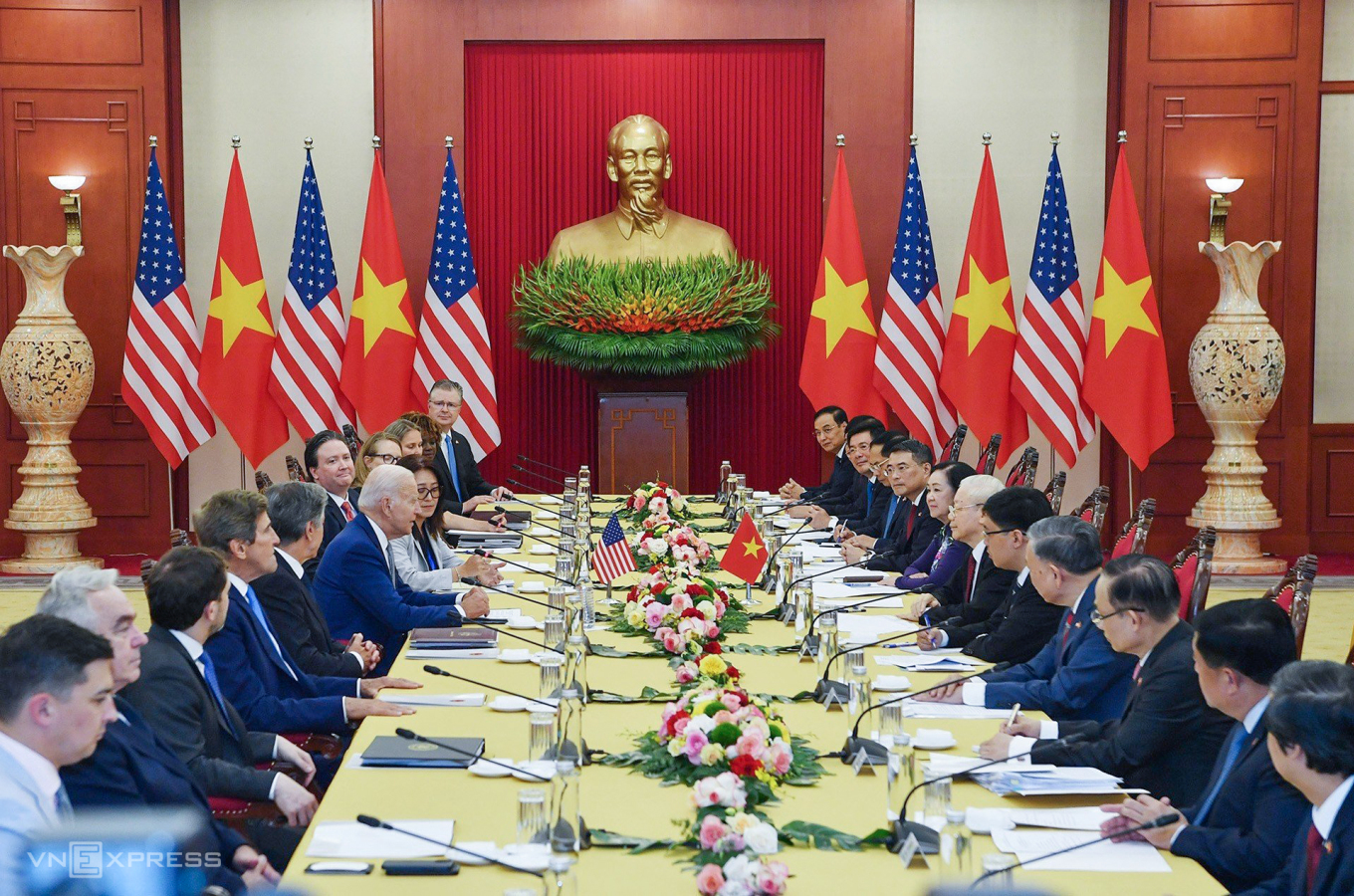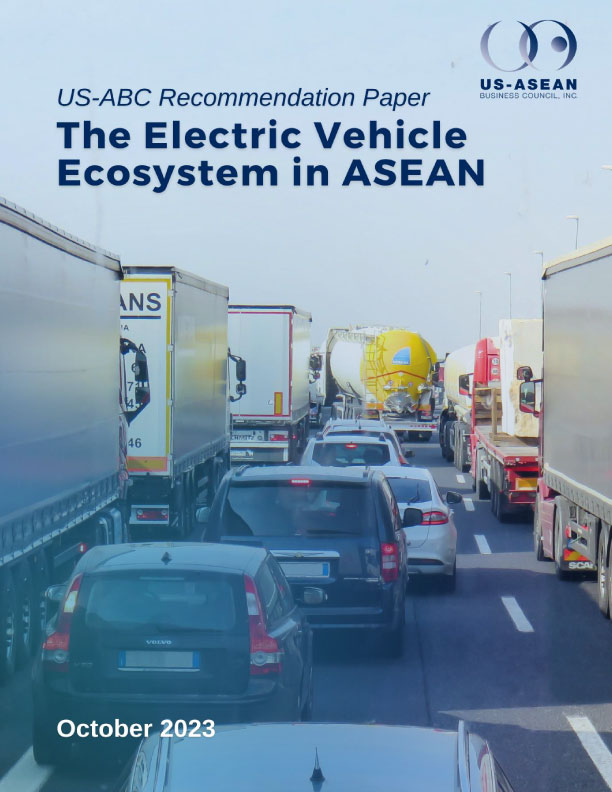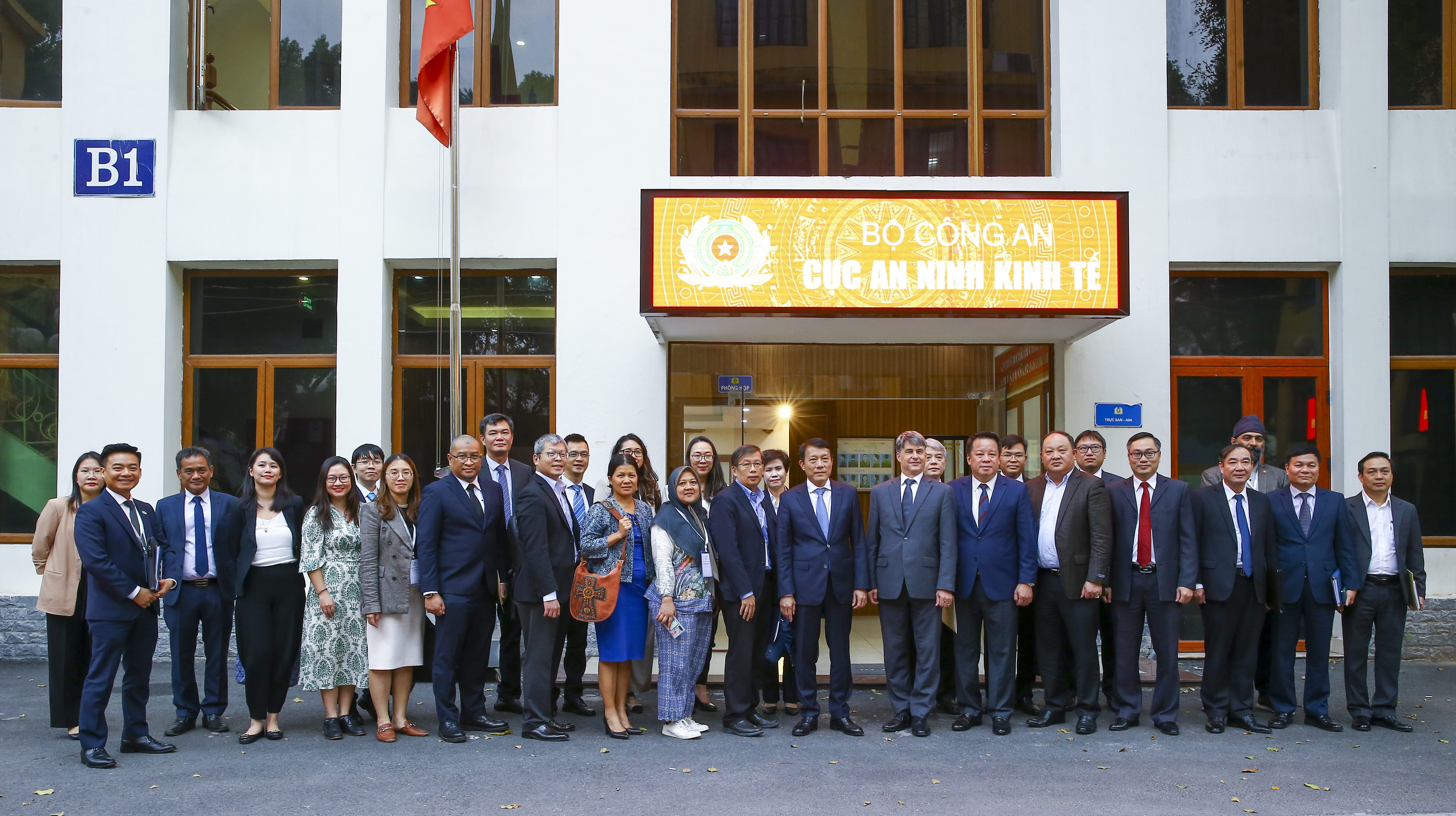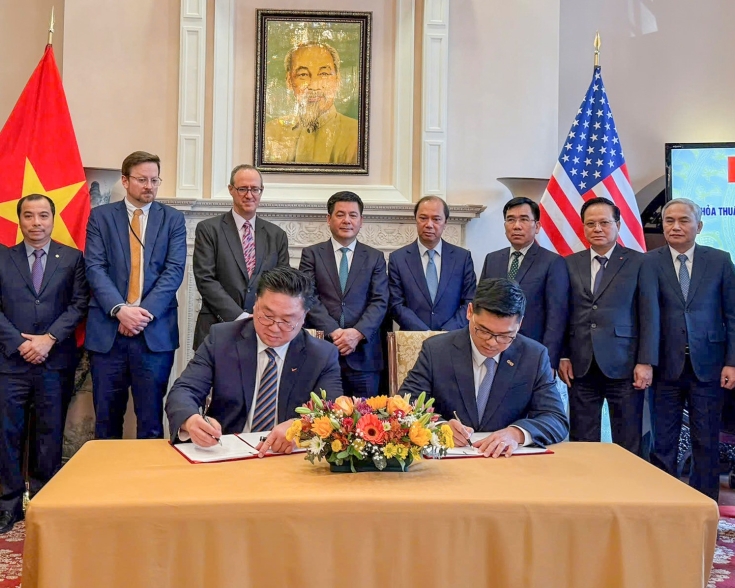Vietnam and U.S. Celebrate 10th Anniversary of Comprehensive Partnership, Forging Path to Deeper Ties

On July 25, the U.S. and Vietnam celebrated their 10th anniversary of Comprehensive Partnership. The Comprehensive Partnership was signed on July 25, 2013, providing an overarching framework for advancing bilateral relationship between the two countries.
The U.S.-Vietnam relations have achieved remarkable progress in various fields over the past decade. Bilateral trade has increased fivefold from US$25 billion in 2012 to nearly US$139 billion in 2022, making Vietnam the seventh largest trading partner of the U.S. Vietnam boasts the highest number of Southeast Asian students studying in the U.S., with an annual range of 23,000 to 25,000 students, and ranks fifth globally. Prior to the Covid-19 pandemic, Vietnam welcomed an annual average of 800,000 U.S. tourists, consistently placing the U.S. among the top five sources of visitors.
This year also saw significant high-level U.S. visits to Vietnam, including visits by USTR Ambassador Katherine Tai in February, Secretary of State Anthony Blinken in April, Treasury Secretary Janet Yellen in July, and most recently, House Committee on Ways and Means Chairman Jason Smith in August. Senior officials from both sides have affirmed their commitment to bolster collaboration in several key areas. These areas include climate change, fair energy transition, and advancement in high technology, particularly through multilateral platforms such as the Just Energy Transition Partnership (JETP), the Mekong-U.S. partnership, ASEAN-U.S. Comprehensive Strategic Partnership, Asia-Pacific Economic Cooperation (APEC) and Indo-Pacific Economic Framework (IPEF).
During these meetings, U.S. key officials also highlighted America’s focus on building resilience in critical sectors, particularly through the "friendshoring" approach to secure supply chain, including a priority in the semiconductor supply chain, while the Vietnamese government underscored the significance of enhancing cooperation for Vietnam's prosperity and urged for favorable conditions for key exports in the US market.
Notably, both U.S. and Vietnam have expressed mutual aspiration to elevate this relationship to even greater heights. As the journey continues, these efforts affirm the shared commitment to fostering deeper ties and forging a path of shared prosperity, with the potential for an upgrade to Strategic Partnership on the horizon.







